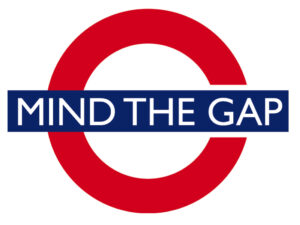When I was at school, one of my teacher’s had their kid in their class with us. In our IT computer class around 2002, if you were caught as a student not using computers for schoolwork, such as surfing the net or playing games you’d get an instant 60 minute detention. But when this teacher’s kid was caught doing it, by their parent the teacher, they not only got away with it one day, but had a laugh with their parent about the content. I, despite being a grade A student and having finished my tasks scored a 60 min detention for jumping on a Flight Simulator forum, in the same class, on the same day. I remember the injustice. Why could the teacher’s kid get away with playing an online game in class and enjoy a laugh with their parent, but I, despite finishing everything I needed for that class got busted to 60 minutes after school for the same thing? To this day, that teacher’s hypocrisy annoys me, and I remember thinking that if, as the school principal said, all teachers are impartial and treat all students equally, this teacher was not therefore fit to be a teacher. President Joe Biden’s decision to pardon his son, Hunter Biden, has ignited fierce debate about fairness, integrity, and the limits of power. While the charges against Hunter are complex, the broader question looms large: is justice compromised when powerful figures protect their own?
Equality under the law is a cornerstone of democracy, yet moments like these raise doubts about whether that ideal is truly upheld. When leaders shield their children from accountability, it sends a dangerous message, that some are “more equal than others.” Such actions undermine public trust, setting a troubling precedent that the rules only apply to the less fortunate.
This issue of privilege isn’t confined to politics. In workplaces across the globe, nepotism thrives, with family members of those in power receiving opportunities, leniency, and protections that others don’t. This disparity breeds resentment and fractures morale. Human Resources studies repeatedly show that perceived favoritism damages trust, mental health, and productivity within teams.
When one employee escapes consequences due to familial ties while another is punished harshly for similar behaviour, the fallout is inevitable: disengagement, cynicism, and declining loyalty. Fairness isn’t just a virtue, it’s a necessity for a cohesive and thriving environment.
Shielding individuals from accountability also robs them of growth. Whether in politics, the workplace, or personal life, the principle is clear: responsibility fosters learning and improvement. Leaders, whether of nations or companies, must model accountability to inspire trust and fairness.
The pardon of Hunter Biden represents a broader issue of privilege undermining justice. To protect the integrity of institutions, we must demand transparency and ensure no one is above the law. History may show that privilege and impunity often go hand in hand, but the future can be different—if we choose to hold leaders accountable.
Joe Biden, as a leader, figurehead, you need to be impartial. If, pardoning your son in this way and not upholding equality under law, then you are not fit to be President of the United States. Your character shows you were never fit to be President of the United States.







































































